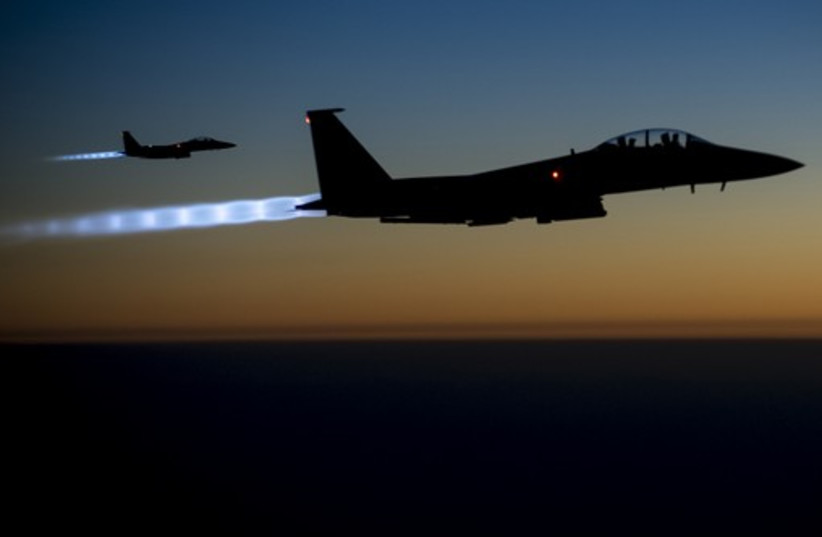US military forces carried out the first phase of its retaliatory response against Iran and its proxy groups with strikes at seven facilities across Iraq and Syria, the White House told reporters on a call Friday night with National Security spokesman John Kirby and Lt.-Gen. Douglas A Sims II, Joint Staff Director for Operations.
The US hit at least 80 targets at four facilities in Iraq and three facilities in Syria, Kirby said, with 125 missiles launched within 30 minutes. Secondary explosions were reported in several locations.
US forces were waiting for the right weather conditions to conduct the strikes, Sims said.
Targets included drone and rocket storage facilities as well as logistics facilities belonging to the Islamic Resistance in Iraq, an umbrella organization made up of Iranian-backed groups.
Multiple types of aircraft were utilized in the strikes from Central Command as well as B1 Bombers that came from the US, Sims said.

Kirby said the use of the B1 Bombers wasn't to send a signal to Iran, but to "those who mean Americans harm."
Battle assessments are still being conducted, though Sims is confident about the precision of targets hit. Imagery of the strikes is expected to be released.
Islamic militant casualties unknown
The number of Islamic militants killed or injured is unknown at this time. Sims said known militants use these locations, and the decision to strike the targets was made knowing there would likely be casualties with people inside those facilities.
Sims said it's unclear if proxy group leadership relocated before the US's strikes.
At the time of the press call, the White House said all US aircraft were out of harm's way.
Numerous times the White House emphasized that Friday's actions were just the first of many expected in the coming days. It's unclear where or when upcoming actions will take place.
The White House also repeated its statement of not wanting to seek war with Iran.
"These targets were chosen because all these facilities are connected to, and are being used by IRGC and their proxy groups," Kirby said. "These responses began tonight, they’re not going to end tonight. There will be additional action that we’re going to take to take away the capability of the Islamic Revolutionary Guard Corps. If you’re taking away the capability of an adversary who's trying to kill your troops, you are by default working to de-escalate the tensions."
Sims said he's confident that Friday's strikes took away a good amount of capability for the proxy groups.
Friday night's strikes come days after the Biden administration promised to hold accountable the groups responsible for the deaths of three American service members who were killed Sunday in a drone strike in Jordan.
Throughout the week the administration indicated the response would be phased, but gave little to no information on what the response would look like or when it would happen.
During the day on Friday, President Joe Biden and First Lady Dr. Jill Biden joined a handful of military leaders at Dover Air Force Base in Dover, Delaware for the dignified transfer of the three service members killed last weekend.
The announcement of Friday's strike came after Biden met with the families of the service members, however, the White House maintained the timing of the strike was unrelated to the timing of the dignified transfers.
The White House said it has not had any communication with Iran since the death of the three service members.
